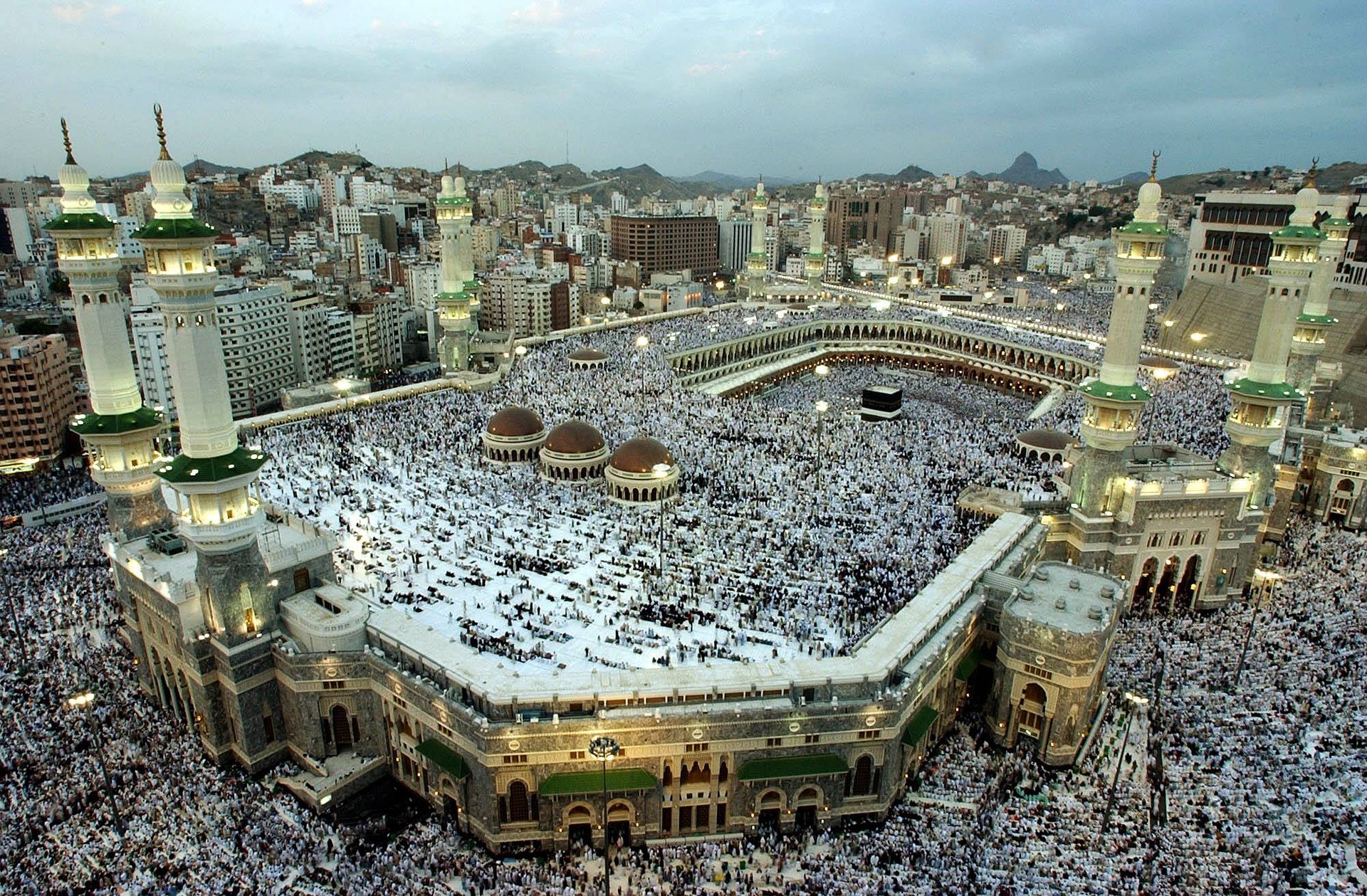This article is an extract from my book Productivity Principles of ʿUmar II, available here.
Our life in this world is temporary. It is the everlasting life of the Hereafter that we need to set as our priority. This is exactly what ʿUmar did, and this mindset is what made him such an exceptional leader. ʿUmar II was always preoccupied with the next life and what he was preparing for it. As a result, every decision he made was to preserve and build a better Afterlife for himself.
Yazīd b. Ḥawshab said, “I never saw anyone more fearful of Allah than al-Ḥasan al-Baṣrī[1] and ʿUmar bin ʿAbd al-ʿAzīz. It was as if the Hellfire had solely been created for the two.”[2]
This statement may seem strange for anyone who is not familiar with the Islamic beliefs related to the Afterlife, so a brief explanation is fitting at this point:
Muslims believe that the Hellfire is a real place, and one of the reasons God created it was to motivate people to do good deeds and abstain from sin. Islam recognizes that different people are motivated differently. Some are motivated by aspirations to attain the love of God, others by the desire for Paradise and some by fear of Hellfire. Each of these rewards or punishments plays a role in bringing people closer to the Creator.
In this way, Muslims do not view the existence of the Hellfire in the same negative sense that many others do. Rather, it is seen as a necessary creation of God that serves a beneficial purpose. This fundamental belief in Heaven and Hell forms part of the fifth pillar of Islamic theology.
ʿUmar II once said, “Take care of your Hereafter and Allah will take care of your worldly life. Take care of your private life and Allah will take care of your public life.”[3]
In this quotation, we see the importance ʿUmar II gave to the Afterlife. He prioritized focusing on the Afterlife and working towards Paradise over worldly goals. He did this with the full conviction that Allah would help him achieve his worldly goals even though the Afterlife was ʿUmar’s primary focus.
In the second half of this quote, ʿUmar II gave another important piece of advice. He advised that we should focus on our private lives. This is crucial for developing sincerity and living a clean life free from hypocrisy. Too often people focus on their public image, while in private they commit many of the evils they publicly preach against. In doing so, they develop a two-faced personality that ruins their Afterlife. In order to meet Allah with a clear conscious, we must be more concerned with our private practice of Islam. When this is straight, everything else will follow.
ʿUmar’s statement is a clear example of the importance ʿUmar II gave to the Afterlife, and how he promoted prioritizing it over worldly goals and public image.
Further proof of ʿUmar’s focus on the Afterlife can be seen in his final sermon, which dealt entirely on the importance of prioritizing the Afterlife. In this sermon, he advised people, “You were not created in vain, nor will you be left without purpose. Verily, you have an appointed time in which Allah, the Most High, will come down to judge you. Wretched and ruined will he be who leaves the mercy of Allah and is denied a Garden whose width is that of the heavens and Earth.
Know you not that no one will be safe tomorrow save one who is wary of today and fears it; and sells the transitory for what will remain, and the little for the plenty, and fear in exchange for security [in the hereafter]? See you not that you are in the loins of the dead, to be taken by those who remain after you until all matters return to the Best of Inheritors?
Every day, [in the funerals] you accompany those returning to Allah, the Mighty and Sublime, having spent their time, until you hide them in a crevice in the ground, in the belly of a bare and unfurnished hole, having parted from their loved ones, stroking the dirt and facing their accounts. Now, they are dependent on their deeds, free of what they left behind, in need of [the deeds] they put before them. So fear Allah before the time He appointed is up and death descends upon you. This is what I have to say.”[4]
Reflecting on the above words shows that his entire focus in this sermon was redirecting people away from chasing the gains to be had in this life and instead focusing on what would benefit them in the Afterlife. This was the final sermon that he delivered, and it shows the high level of priority he gave to attaining the good in the Afterlife.
A final story that indicates the importance ʿUmar II and his advisors gave to the Afterlife is related in the following narration. It is reported that ʿUmar b. ʿAbd Al-ʿAzīz once wrote to Al-Ḥasan Al-Baṣrī to get some advice from him, so Al-Ḥasan wrote back, “The world distracts and preoccupies the heart and body, but Zuhd (asceticism, not giving importance to worldly things) gives rest to the heart and body. Verily, Allāh will ask us about the Ḥalāl things we enjoyed, so what about the Ḥarām!”[5]
Even in their private advice between each other, the focus was on accountability to Allah on the Last Day. This was the guiding force behind all the efforts, goals, and projects of ʿUmar II.
The Fifth Pillar of Faith
In Islam, there are six pillars of faith (iman). These are the six core beliefs of Islam. If a Muslim denies any of these six pillars, then that individual is no longer a Muslim. These beliefs are the belief in the Oneness of Allah, belief in the angels, the divinely revealed scriptures, the prophets, the Afterlife, and destiny.
The fifth pillar of faith or belief in the Afterlife includes the following doctrines. Muslims believe that God created the soul to live forever in the Afterlife. Our existence in this world is temporary and a test. After we die, our souls are transferred to the barzakh (world of the dead) where the soul is either rewarded or punished until the Day of Resurrection.
On that day, all souls will be resurrected in new bodies and will face judgment. Based on that judgment, the souls will either face eternal damnation, eternal bliss, or temporary punishment followed by eternal bliss. Muslims do not have the authority or knowledge to say which individuals will go to Heaven or Hell, rather we trust God’s Perfect Justice and Mercy and leave the judgment to His Perfect Attributes.[6]
But what do these beliefs have to do with productivity?
The Importance of Believing in the Hereafter
Belief in the Hereafter is one of the fundamental beliefs of Islam, but it is also key to true productivity. Many people don’t see the point in setting goals and working hard if we are all just going to die anyway. This nihilistic attitude causes many people to simply waste their lives away.
However, when we embrace the idea that there is another life after this life, an everlasting life that can be full of bliss and happiness, it motivates us to work for a higher purpose and towards a nobler goal. It then doesn’t matter whether we necessarily see the fruits of our efforts in our lifetime or not.
What matters is that we leave behind beneficial projects that continue to make an impact long after we have passed away. It may seem like we might not see the fruit of our goals, but we will see it on the Last Day when we face our Creator and see the list of deeds we left behind.
Islam encourages us to focus on beneficial projects that last long after we pass away; these projects become a source of continuous reward for us, even centuries after leaving this earth. Such projects include charitable work, knowledge that benefits people, and even righteous offspring that make this world a better place.
Regarding this, Prophet Muhammad (s) said, “When the human being dies, his deeds end except for three: ongoing charity, beneficial knowledge, or a righteous child who prays for him.”[7]
Narrations like this encourage focusing on life after death. Not just doing what we can with our present lives, but looking beyond to what impactful and beneficial legacy we can leave behind after we have passed on to the next life.
A Fuel for Productivity
Belief in the Hereafter forces us to think bigger. It makes us look beyond our lives at what impact we can have even after our deaths. Islam teaches us that certain good deeds continue to pile up on our accounts long after we have passed away.
Dr. Bilal Philips describes the Islamic Belief in the Hereafter as follows:
Those who believe in the Afterlife, resurrection, and the judgment, are obliged to consider carefully the consequence of their deeds. Belief in the Last Day causes them to think beyond their immediate needs and desires. It sets their goals beyond this temporal existence.[8]
When we embrace the concept of an Afterlife, we no longer work for the trivial rewards of this world. Our focus lies beyond the immediate horizon; we work for the everlasting rewards of the next world. In doing so, we elevate our goals and efforts to another level, and everything we do takes on a spiritual dimension.
Belief in the Afterlife also makes us more principled and less likely to violate these principles when facing desperate situations.
Dr. Bilal Philips explains this concept well:
Believers in the Judgement will not compromise the basic commandments of God in order to attain some limited measure of material success. They will be principled individuals, sticking to their beliefs and practices regardless of how odd they may seem or how lonely and isolated the society may make them.
Those who do not believe in the Judgement tend to be good as long as it is convenient. But when everyone else around them is cheating or stealing, or being honest will cost economic loss, they usually compromise their principles with appropriate justifications.[9]
This statement may seem like a generalization. There may exist people who remain honest in all situations even without belief in the Afterlife. However, it can’t be denied that belief that one will be held accountable or called for judgement does provide a stronger basis to remain firm on one’s principles even when things seem desperate.
Belief in the Afterlife leads to a more productive lifestyle in many ways. It causes us to focus on bigger goals that extend beyond our lifetime; it gives life purpose and meaning; and it makes us unwavering in our principles. The life of ʿUmar II is an excellent example of this belief in practice.
To continue reading this chapter, get the full ebook here.
[1] Al-Ḥasan al-Baṣrī was a famous Muslim pious ascetic and scholar that lived during the same period as ʿUmar II.
[2] As-Sallabi, ʿUmar Bin ʿAbd al- ʿAzīz, pp. 724-725
[3] Kitāb al-Ikhlāṣ, 50
[4] Abū Bakr Al-Daynūrī, Al-Mujālasah wa Jawāhir Al-‘Ilm Vol. 3 p343
[5] Al-Bayhaqī, Al-Zuhd Al-Kabīr, article 26
[6] Dr. Muhammad Khalil Harras, Ibn Taymiyyah, Sharh al-ʿAqīdat al-Wāṣatiyyah, pp. 163-179,
[7] Ṣaḥīḥ Muslim 1631
[8] Dr. Bilal Philips, The Clash Of Civilisations, p. 141
[9] Ibid. P. 141






